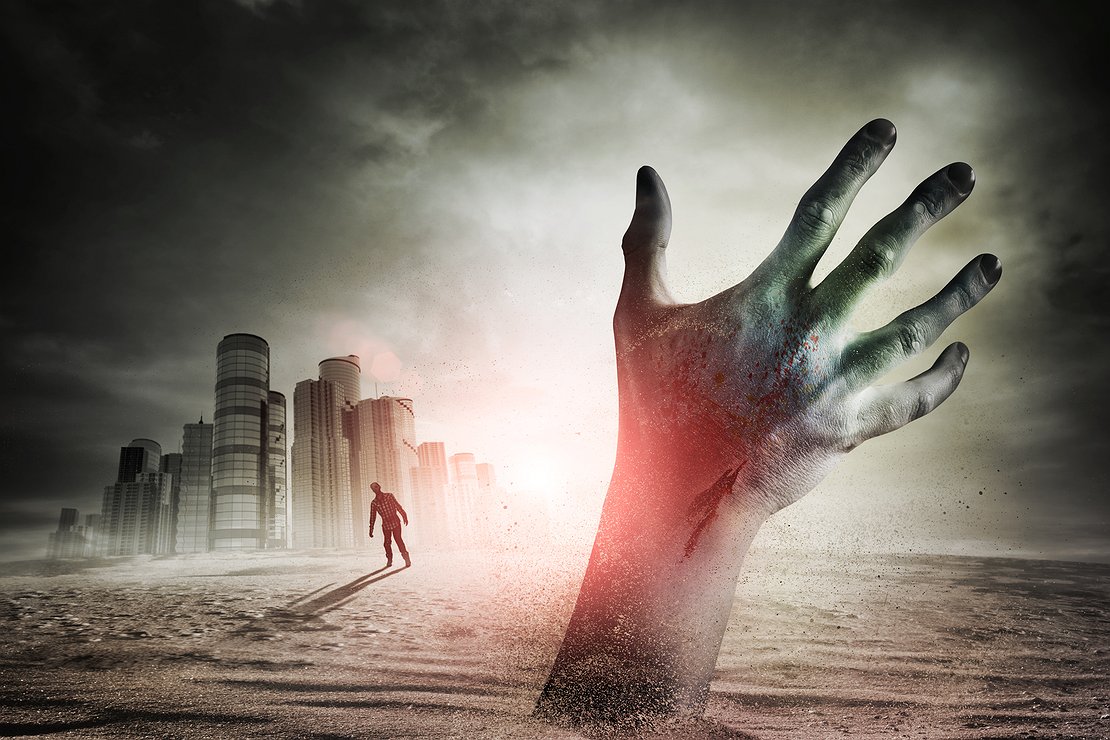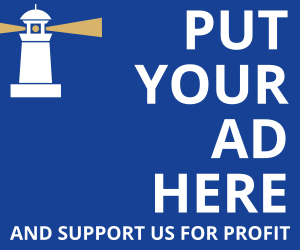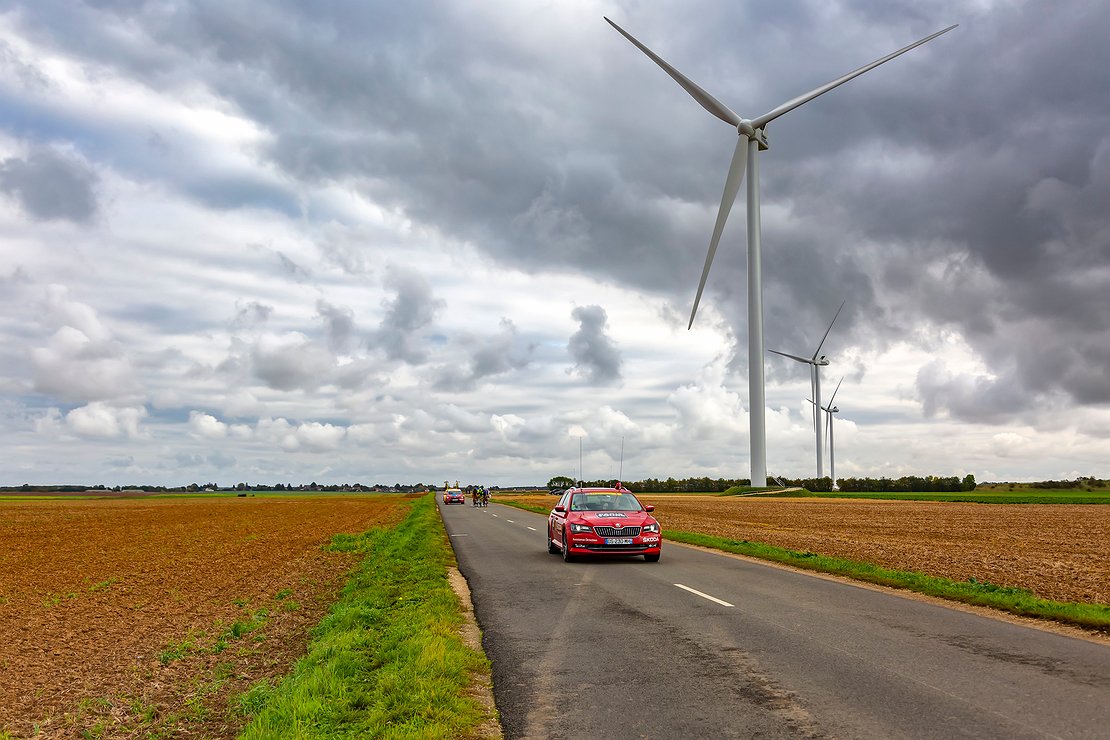
The Political Philosophy of Zombies:Questions of Life and Death
Once again, I’m a latecomer. My career as a serial junkie began only a year ago, when I discovered for myself the likeable serial killer ‘Dexter’ (96 episodes produced in eight seasons from 2006 to 2013) and then just ‘sucked up’ the episodes one after another. Then, before withdrawal could start hurting too much, I came across ‘The Walking Dead’ (there have been more than 100 episodes since 2010, it’s now in its eighth season).
So that may be the end of it, but one should never say ‘never.’
I'm not a fan of horror films, however, quite the opposite. But the two series are more than that. ‘Dexter’ is rather lightweight, sometimes accompanied by fine black humour, and enriched with two philosophical, above all existential philosophical questions. Namely whether, first, an ice-cold serial killer can even act morally, and whether, second, he can change into a sensitive and upright man. The apocalyptic drama ‘The Walking Dead’ casts even deeper philosophical and in this case politico-philosophical shadows.
What do the zombies mean, what do they symbolize? And how, after a total collapse of civilization, do people act and reorganize societies under the worst conditions? What is surprising is that left and right, liberals, conservatives and socialists, the politically correct and incorrect, have all been arguing about how to interpret ‘The Walking Dead’ ever since the start of the series in 2010. Fans can be found in all ideological camps.
In the US, so deeply divided in a cultural struggle, there is hardly another series that is loved as much on both sides of the barricades as the apocalyptic epic about Rick, Daryl, Maggie, Carol and the others who are still just about alive (or are they?). That's another distinctive feature of this series: The heroes die like flies – no sooner have we become acquainted with and cherished a hero, during the many hours of a series, and much more intensively than in any simple feature film, than he's killed off. Perhaps this is one of the recipes for its success – because even in real life, there’s always the anxious question: Who will be the next one from our circle?
And the zombies? They are actually of secondary importance and only symbolize the constant lurking danger from outside. A metaphor? Perhaps – Christians could understand them as a kind of divine revenge against the people who are increasingly denying God – ‘I imagined life after death differently,’ someone says in a legendary early scene. Left-wing anti-capitalists may discover hordes of wandering consumers in the swathes of the undead, or simply a symbol for the rich. Rightwing immigration critics tend to see an image of illegal migrants. Mainstream supporters may be thinking of IS terrorists. Or do the zombies stand for cyberworlds that have gained independence – a different interpretation of ‘Westworld,’ located in the southern United States?
The Walking Dead’ is not only dystopian science fiction, but also a very long sentimental movie about the Grand Old South, as well as a neo-western and road movie in one, brought to cinematic life from a comic-strip like Asterix, Batman, Superman and X-Men. The American South is not as pathologically decayed in reality as in the chilling world of screen zombies – but with all the typical streets, forests, plantations and antebellum-style houses, it remains identifiable to connoisseurs.
But why do the increasingly divergent ‘Conservatives’ and ‘Liberals’ appreciate ‘The Walking Dead’ in equal measure? The only other person who is possibly equally appreciated in such a way is all-American icon Willie Nelson, the hippie cowboy singing against taxes and for gun rights and drugs. Actually, they ought all to be disappointed, because there’s no utopia of any of these ideological flavours that really appears in the cruel world of the movie, the cinematic world in which every viewer at some point wonders whether they would in fact have the courage and strength to want to survive there.
In an early episode, the protagonists flee to a laboratory. Here the only surviving scientist explains the ‘medical background’ of the transformation of the dead into merely cerebrally driven undead – but above all, this expert has lost all hope of salvation with regard to the zombie ‘virus’ and so kills himself. Rick Grimes, the leader of the group, whom the viewers are behind, refuses to do the same: ‘All we want is a choice, a chance’. Just don't give up – that's the core message for the group. Mario Loyola commented in the right-leaning ‘National Review’: “One insight of The Walking Dead is that any ethical system presupposes, and is therefore subordinate to, the imperatives of survival.”
Norman Reedus, the actor playing Daryl Dixon, the ‘Lone Wolf’ and actual superstar of the series, says this in an interview too, in a way that somehow everyone can relate to: “Make a stand and say what you need to say and do what you need to do and protect your friends even before you protect yourself”. He continues: “Self-sacrifice and bonding together is really what the show is about.” Who would disagree with that – except Ayn Rand?
In fact, this zombie apocalypse has some heavenly prospects on offer for everyone: Capitalism and entrepreneurial exploitation have disappeared from the face of the Earth – the Left rejoices. The state and bureaucratic exploitation have also been utterly destroyed –libertarians join in the celebrations. The culturally destructive demands of the modern world, from Hollywood to pornography, have also disappeared – conservatives join in too. Isn't that lovely?
It is not! Rather, the worst enemies of the survivors are not the undead. Hell on Earth does not loom as an abstract danger, it consists of other people. People who are beginning to reconfigure in small archaic tribes. In this way groups of cannibals emerge and finally a sophisticated tax and exploitation system around the ultra-brutal dictator Negan and his revolutionary guards, the ‘Saviors.’ Here, not only outright libertarians recognize the symbolism of the re-emerging state – or at least a kind of proto-state.
But it is the obnoxious political leader Negan, of all people, who now has a lot of followers in the very real fandom of the series, perhaps not quite as many as the mysterious lone fighter Daryl, but rather more than the kind, caring father and leader Rick. The popularity of merchandise articles, one reads, is ranked in that order. Strong leaders are feared and venerated – an almost fascistic lesson of ‘The Walking Dead.’ Anyone wondering why the North Korean system of rule still exists today will find answers here deeply rooted in the human psyche, answers that are not only to be found in the omnipresent fear of brutal-sadistic state power.
Does the lone wolf Daryl, on the other hand, stand for a kind of proto-libertarian? The caring Rick for the conservative ideal? And, after the death of his wife, his second partner, Michonne, as a strong black woman for everything that’s holy for today’s Left? In any case, the actress who played Michonne was the only performer in the series to express herself in a suitably politically hypercorrect way, when she linked the apocalyptic zombie world to “our life with Trump.”
Of course, in an American series of our time, costing millions of dollars, there are going to be further traces of cultural Marxism. In the end times, according to the legend shown to us, everyone is equal: women fight like men or better, especially if they were abused by their husbands in the past, token gays and lesbians enrich society, all newly paired up couples are markedly mixed ethnically, while Rick’s first wife still remembers how he used to be and Daryl comes from a redneck racist family and has been chastened by circumstances. Is that realistic? No more black gangs as they exist in today’s ghettos, no more religious conflicts?
In any case, and this too is part of the left-leaning plot, religion seems to no longer play a role after the apocalypse. Even the mysterious priest seems to have lost his faith. Shouldn't one intuitively assume the opposite – doesn’t experience show that after terrible disasters people look for salvation in faith? Another foundation of civilization, families, are also brutally destroyed in ‘The Walking Dead;’ the wandering horde is now called ‘the family.’ On the other hand, ‘good’, values include honor and – not least – loyalty, as never before. And that allows for a very conservative interpretation again. After all, what certainly does not appear after the disappearance of evil capitalism in ‘The Walking Dead’ is a kind of leftist utopia with free love and motherhood and apple pie. After all, at least rudimentary production and trade are being resumed – in other words, a libertarian story after all?
What speaks against this is that for example money no longer plays a role in Alexandria and its surroundings, not even new money or surrogate money – at least, not yet. It's more like everyone holding together in a kind of heavily armed hippie mode – each according to their own needs. And the struggle is romanticized as an end in itself. For this reason, Timothy Sandefur assumes a deeply anti-capitalist affront in the libertarian ‘Reason Magazine’, because “survival here means mere life, not human flourishing.” When the survivors seek shelter in an old prison, the old farmer Hershel persuades Rick to lay down his weapons and to farm instead. He cultivates tomatoes and breeds pigs – but they soon fall ill, and the weakly guarded prison is stormed by the ‘governor’ and Hershel is killed. Sandefur comments: “Time and again, The Walking Dead dismisses the bourgeois virtues as superficial, caricatures them as foolish, or parodies them as neuroses.”
Does Alexandria, carefully depicted as middle-class, under the leadership of an ex-politician (obviously a Democrat), in its defencelessness represent our life today? In ‘The Walking Dead,’ religion and tradition have largely fallen away, along with markets and trade. Sandefur even thinks that the zombies are a “clever indictment of the longing for immortality that often inspires humanity's worst.” On the other hand, left-wing bleeding hearts are also held up to ridicule. One episode portrays a traumatized girl who is convinced that the murderous zombies are actually ‘good’ and ‘happy.’ So instead of killing zombies, she cuts her own sister's throat.
Speaking of killing zombies: can the dead even be killed? Will Rick succumb to the temptation of power he is repeatedly confronted with? Don't more than 100 episodes of ‘The Walking Dead’ show that, in the end, decency and morality thrive without legislation – and despite Negan's state? When the very first human foundations have been rebuilt, won't tradition, religion, family and above all market and trade come to blossom again – thank God? So is what we’re shown only a kind of transition stage, with people progressing back to civilization?
In the end, more questions remain unanswered than answered – the sign of a good story. In one review of the series, Laura Bogart writes: “Although it will never be Dostoevsky, ‘The Walking Dead’ might have something truly smart to say about our current moment after all.” Even in the parallel world of zombies, our most important questions remain the same.
I doubt that I will fall for another TV series in this way. However, I’ve just seen that three seasons of an offshoot have already been filmed; it starts before the beginning of ‘The Walking Dead,’ namely at the outbreak of the ‘virus’ and thus at the beginning of the collapse of the old order. Sounds interesting? Does it raise new questions? ‘Fear the Walking Dead’ is also produced by AMC, but takes place on the West Coast. Let's just have a quick look...
Translated from eigentümlich frei, where the original article was published in issue no. 179, Jan/Feb 2018.




